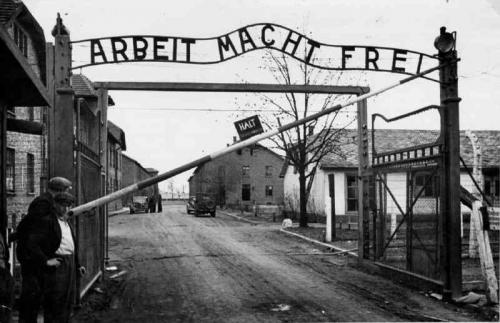Important Lessons We Learn From the First Murder—Cain and Abel
Nobel Prize winning author, John Steinbeck, called Cain and Abel: “Perhaps the greatest story of all—the story of good and evil, of strength and weakness, of love and hate, of beauty and ugliness.” It is “the best known story in the world because it is everybody’s story. I think it is the symbol story of the human soul…the greatest terror a child can have is that he is not loved, and rejection is the one hell he fears.”
I agree with Steinbeck. The sixteen-sentence story of Cain and Abel has much to teach us about life in our contemporary world, the reality of rejection, and what we can expect and what we should not expect from God.
In the novel, Steinbeck puts these words into the mouth of the remarkable Chinese servant, Lee . . . The greatest terror a child can have is that he is not loved, and rejection is the hell he fears. I think everyone in the world to a large or small extent has felt rejection.”
Without doubt, Cain and Abel is a story about all of us because all of us have felt rejection. Cain is a farmer, and Abel is a shepherd. They both make offerings to the Eternal One. God rejects Cain’s offering, but accepts Abel’s.
Why does God accept one offering and not the other? For rabbinic tradition it is not a problem. Abel brought his best; Cain did not. Bereshit Rabbah 22:3 claims that Cain’s offering was the waste products of the fruit, or the late-blooming, stunted fruits as opposed to Abel’s gift of the best he had.
Our Sages are not comfortable with the notion that God would capriciously reject one offering and accept another. So, they read the text to reflect God acting righteously. In so doing, though, I feel they have both distorted and diminished the story’s message!
The phrase (in Genesis4:3), “for his part,” is a rendering of the single two letter Hebrew word, “GAM.” Now anyone who has studied Hebrew knows “GAM” means, “also.” If we translate, as some Bible versions do, “GAM” as “also,” we give a much different meaning to the story.
“In the course of time Cain brought an offering to the Eternal One from the fruit of the soil and Abel also brought the choicest of the firstlings of his flock.”
What a difference!
When we read the text substituting “also” for “for his part” we see both boys making their best offering, but God accepts Abel’s offering but rejects Cain’s.
The obvious question is, “Why?”
“I don’t know why!” I cannot speak for God, and God does not answer to me. But I do know this: Sometimes the Torah does not teach us about how life should be, but about how life is.
The story of Cain and Abel is so real because we all have felt—and will fee— Cain’s pain. We all make offerings– sometimes our very best offerings–that others reject.
- Did you ever study for days—even weeks–for a test and receive a mediocre grade while another in your class got an A for seemingly little effort?
- Did you ever dream of being the star of the team? Did you work oh, so hard only to end up a reserve on the bench when another grabbed all the glory?
- Did you ever hone your skills and your resume to apply for a promotion that went to another?
- Did you ever offer your love to someone who did not return your feelings but gave his or her heart to your rival?
No one goes through life without Cain’s experience of making offerings that others reject. The biggest challenge in life is not how to avoid rejection but how to overcome it!
Here, our story is especially instructive. God takes time to address Cain, as I believe God addresses each and every one of us, saying: “Why are you distressed? Why is your face fallen? Surely, if you do right, there is uplift, but if you do not do right, sin crouches at the door. Its urge is toward you, but you may rule over it.” (Genesis 4:7)
What is God’s advice when others reject our offerings? Keep on keeping on! Keep making offerings, keep doing the very best that we can. When others reject our offerings, we identify with Cain’s reaction to God’s rejection. Just as Cain was angry and jealous, so are we!
As Steinbeck himself wrote in his notes: “Every man (sic) has Cain in him.” (Notes, p. 128) The successful person is not the one whose offerings are always accepted but the one who perseveres, keeps doing her or his best, and continues to live positively and productively even in the face of rejection.
Sometimes I wish the story of Cain ended after God’s message of hope, but it doesn’t. As we know, despite God’s personal appeal, Cain kills Abel. We may rule over the urge to sin, but then again, we can choose not to!
As much as we might wish that God would have stepped in and stopped Cain’s murder, God does not.
So many people say to me, “How can you believe in God after God let so many people die in the Holocaust?” My response is that, in the fourth chapter of the very first book of the Torah, Jewish tradition makes clear that it is foolishly naive for us to expect that God will thwart the evil intentions of humanity.
Now scholars argue whether God can stop evil and chooses not to, or whether God’s power to stop evil is limited. I don’t know, so I leave that debate to others, but I do know this:
If God stepped in to stop all evil, then the decisions we make in our life would not have meaning, and if our Torah affirms one principle above all, it is that life does have meaning.
When I was a kid I remember advertisements on TV for Colgate Dental Cream with “gardol.” There would be this big white thing with a mouth and eye and two arms. That was Happy Tooth. Then we would see this slimy figure on a horse with a lance galloping toward Happy Tooth. That was Mr. Tooth Decay, and his mission was to poke holes or cavities in Happy Tooth.
Just before Mr. Tooth Decay reaches Happy Tooth, Happy Tooth brushes himself with Colgate Dental Cream with “gardol”, as we hear in the background: “Brush you teeth with Colgate, Colgate Dental Cream. It cleans your teeth, while it guards your breath. UMMH…”
Now, somewhere between “breath” and “ummh”, an invisible Lucite-like wall slams down in front of Happy Tooth to protect it. About a second later, Mr. Tooth Decay slams into the invisible Gardol shield in front of Happy Tooth. When he hits the wall, Mr. Tooth Decay breaks his lance, tumbles to the ground, and slinks away in disheveled disgrace.
The point here is that according to our Bible, God is not “gardol.”
From its very beginning our tradition offers no legitimate basis to expect God to intervene and prevent human evil. In other words, if a madman arises who kills six million Jews, and then society, not God, must bear the blame.
If God does not stop evil, then what does God do?
To me, God is the force within us that urges us toward goodness. It is God’s voice, I believe, that strains for our attention when we feel tempted to do wrong. It is also God’s voice that strains for our attention after we do wrong.
God asks Cain, “Where is Abel your brother? And Cain responds, “I do not know. Am I my brother’s keeper?” Hopefully, God’s answer to Cain echoes to us across the millennia: “Hark, your brother’s blood cries out to me from the ground!”
Am I my brother’s keeper? Of course we are, and we make our lives meaningful only when we accept that awesome responsibility.
And so there it is: a story that teaches how to face rejection, why God doesn’t stop Holocausts, and how God wants us to live!
To these vital lessons, the rabbis add one more. The Midrash recounts that one day, after God announced that Cain would not die for his sin, his father Adam saw him wandering across the land. “Cain,” called out father Adam. “What did God do to you?”
“I did Teshuvah, I repented,” Cain answered, “and God forgave me.”
“Gevalt!” Answered Adam. “God forgave you?! If I had known the power of Teshuvah was so great, I would still be living in the Garden of Eden!”
Adam may not have known the power of repentance and forgiveness, but we can discover it. If we truly repent our wrongdoings, we, like Cain, can discover the immense power of God’s forgiveness for which we pray during the sacred day of Yom Kippur.
 (Breslau, Erev Shabbat Bereshit, 5777)
(Breslau, Erev Shabbat Bereshit, 5777)


 Julie Goldstein looked forward each year to the time she and her family built their sukkah, a temporary hut in their backyard.
Julie Goldstein looked forward each year to the time she and her family built their sukkah, a temporary hut in their backyard.